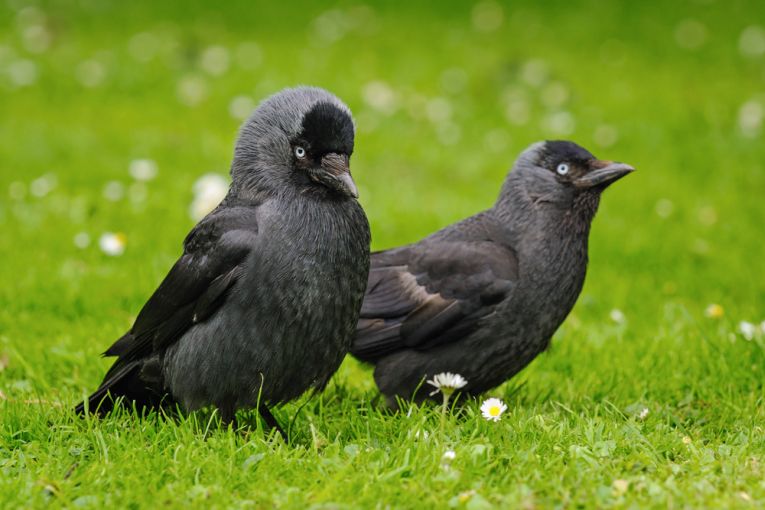bird brainsJackdaw image; Credit: © Shutterstock
The abilities and intelligence of the crow family have often been compared to the most advanced animals, including ourselves. How does the size of their brain fit in with that? Cognitive effort is needed for all but the simplest repetitive tasks in nature with self-control defined as a demanding ability to reject small rewards in favour of greater long term benefits.
Self-regulation promotes a rational approach to your niche. Recently, 36 species of animal were checked for their ability to make decisions in terms of their motor self-regulation. Absolute brain size was proposed as the predictor of performance., with the obvious great apes as most successful and birds relegated to the lowest levels. This paper recognises the avian class as the most flexible in cognition, using a standard cylinder task to prove it.
Ravens, New Caledonian crows (Corvus moneduloides) and jackdaws have long been recognised as highly intelligent animals, despite their bird brain. They are all corvids, having the largest relative brain size among birds, with ravens the outright largest. Perhaps there is a mechanism that enables great self-regulation with the possession of a necessarily small brain. But on with this experiment ---.
An opaque hollow cylinder, seated on a wooden base, contains a central reward for the animal. Learning to enter the cylinder is stage one, while a transparent cylinder replaces the opaque in stage two. Inhibition failure
is an obvious attempt to grab the reward now that the cylinder reveals its contents. You can just imagine the early experiments with this apparatus involving humans and rhesus monkeys!
A similar experiment to reveal cognitive processes was invented by the renowned Piaget. Among many other human developmental processes, he studied how the infantile concept of object permanence develops. Another opaque container (A) contains a reward while a B container later contains it. A search resulting in the choice of A when the subject has seen the reward moved to B is classed as an error. Cognitively, the subject must inhibit their experience in collecting rewards from A. personally, I would like to see the 3 species doing this, but the experimenters decided to stick to the hollow cylinders.
Lund University and the Max Planck Institute in Seewiesen were used for the experiments. Habitation to the opaque container took place in the outdoor aviaries, with all the subjects used interacting with the container after 2 days for most birds. The reward was then clearly placed in the opaque cylinder and all birds managed 4/5 successful consecutive trials after one day.
Then came the transparent container. Any contact with the side of the cylinder was counted as a failure. The subject had to enter through one of the entrances to succeed. And the results (in percentages) were:
Ravens= 100
Jackdaws= 97
NC crows=92.
This compares with chimpanzees in previous experiments scoring 100%, orangutans on 99.1% , capuchins at 95.9% and rhesus monkeys at 80%. As the brain of a chimpanzee is 26 times larger than that of a raven, and jackdaws have brains that are 70-94 times smaller than those of lower-scoring apes, the comparison leaves primates standing! New research indicates that small brains may not have less neurons than large brains, indicating a sort of parallel evolution with our current obsession with smaller computer sizes.
The competitive element displays our own drive for interesting results in an almost sporting context. The league tables of animal ability certainly inspire us, making a new experiment on the amazing dolphin intelligence (and their sociality) likely. What is certain is that previous attempts to quantify intelligence have always been improved. Now we can see how our contemporaries on earth cope with learning, perhaps we can ourselves learn more about the fascinating abilities that we do not possess, on land sea and air.
Congratulations on a tremendous contribution to the intelligence debate by Can Kabadayi, Lucy A.Taylor, Auguste M. P. von Bayern and Mathias Osvath of Lund University, Sweden and the Max Planck Institute for Ornithology in Germany, publishing today in the Royal Society's Open Science journal with Ravens, New Caledonian crows and jackdaws parallel great apes in motor self-regulation despite smaller brains.










